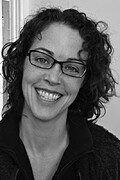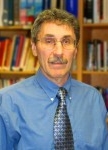Is a Health Study the Answer for Your Community? A Guide for Making Informed Decisions
12:00 pm US Eastern Time
Slides & Resources
Speaker Presentation Slides
Is a Health Study the Answer for Your Community? A Guide for Making Informed Decision
Additional Resources
Health Studies Guide: Is a health study the answer for your community? A guide for making informed decisions
Residents living in communities affected by environmental hazard often seek technical and scientific expertise. In particular, they may have concerns about a how such exposures affect their health. These exposures include drinking water contamination, power plant emissions or lead-contaminated land. People may also suspect that a certain disease in their community, such as lupus, is caused by a particular environmental exposure. All of these are reasons for wanting a health study.
However, a health study may not always be helpful in resolving an environmental problem in the community. Environmental health scientists at Boston University School of Public Health (BUSPH) and the BU Superfund Research Project (BU SRP) have worked for decades with community groups to address environmental health problems. Some of these faculty members contributed to the Health Studies Guide to assist community groups and individuals who think that some form of environmental health investigation or health study may be useful or necessary in their community.
The ultimate objective of working with communities is to protect their health, reduce exposures to environmental hazards, and prevent future adverse health outcomes. On this call, one of the primary authors of the Health Studies Guide, Madeleine Scammell, DSc, assistant professor of Environmental Health at BUSPH, discussed the considerations that might influence a community decision about whether or not to do a health study, and the types of studies to choose from. Sylvia Broude, executive director of the Toxics Action Center, a BU SRP community engagement partner who has used the Guide with communities in efforts to organize and educate activists about environmental health issues, also presented. Stephen Lester, MS, science director at the Center for Health, Environment and Justice, provided comments following the presentations.
Featured speakers
 Madeleine Scammell, DSc, is an Assistant Professor of Environmental Health at Boston University School of Public Health, and serves as leader of the Boston University Superfund Research Program Community Engagement Core. In this capacity her work includes developing mechanisms to support long-and short-term research relationships between community groups and scientists, and responding to community requests for scientific assistance. Dr. Scammell is also a JPB Environmental Health Fellow at Harvard School of Public Health. Her expertise is in the area of community-driven and community-based participatory research and includes the use of qualitative methods in the area of environmental health and epidemiologic studies. Dr. Scammell serves of the Board of Health in the City of Chelsea, MA, and on the board of directors of the Science & Environmental Health Network.
Madeleine Scammell, DSc, is an Assistant Professor of Environmental Health at Boston University School of Public Health, and serves as leader of the Boston University Superfund Research Program Community Engagement Core. In this capacity her work includes developing mechanisms to support long-and short-term research relationships between community groups and scientists, and responding to community requests for scientific assistance. Dr. Scammell is also a JPB Environmental Health Fellow at Harvard School of Public Health. Her expertise is in the area of community-driven and community-based participatory research and includes the use of qualitative methods in the area of environmental health and epidemiologic studies. Dr. Scammell serves of the Board of Health in the City of Chelsea, MA, and on the board of directors of the Science & Environmental Health Network.
 Sylvia Broude is the Executive Director for Toxics Action Center. She oversees Toxics Action Center's six New England offices and supervises a team of staff that organizes with nearly 100 communities each year. Sylvia joined Toxics Action Center as a community organizer nearly a decade ago. Recently, she played a critical role in efforts to close an 86-year old coal plant in Massachusetts and prevent a new incinerator ash landfill in Connecticut. Sylvia serves on Advisory Boards to the Administrative Council for the Massachusetts Toxics Use Reduction Act and the New England Consortium, and she is a senior fellow for the Environmental Leadership Program. Prior to joining the Toxics Action Center team, she ran electoral campaigns in Florida and New Jersey with MoveOn.org Political Action and the Sierra Club. She studied anthropology and political science at Yale.
Sylvia Broude is the Executive Director for Toxics Action Center. She oversees Toxics Action Center's six New England offices and supervises a team of staff that organizes with nearly 100 communities each year. Sylvia joined Toxics Action Center as a community organizer nearly a decade ago. Recently, she played a critical role in efforts to close an 86-year old coal plant in Massachusetts and prevent a new incinerator ash landfill in Connecticut. Sylvia serves on Advisory Boards to the Administrative Council for the Massachusetts Toxics Use Reduction Act and the New England Consortium, and she is a senior fellow for the Environmental Leadership Program. Prior to joining the Toxics Action Center team, she ran electoral campaigns in Florida and New Jersey with MoveOn.org Political Action and the Sierra Club. She studied anthropology and political science at Yale.
 Stephen Lester, MS, Science Director at the Center for Health, Environment and Justice. Stephen received his first Master’s of Science, in Toxicology, from Harvard University, and his second Master’s of Science, in Environmental Health, from New York University. He received his Bachelor’s of Science in Biology from American University. Stephen has served on numerous scientific advisory and peer review committees including at the Natural Resource Council of the National Academy of Sciences, the National institutes of Environmental Health Sciences, and the Congressional Office of Technology Assessment.
Stephen Lester, MS, Science Director at the Center for Health, Environment and Justice. Stephen received his first Master’s of Science, in Toxicology, from Harvard University, and his second Master’s of Science, in Environmental Health, from New York University. He received his Bachelor’s of Science in Biology from American University. Stephen has served on numerous scientific advisory and peer review committees including at the Natural Resource Council of the National Academy of Sciences, the National institutes of Environmental Health Sciences, and the Congressional Office of Technology Assessment.
The call was moderated by Ted Schettler, MD, MPH, Science Director at SEHN, as well as at CHE. The call lasted one hour and was recorded.


